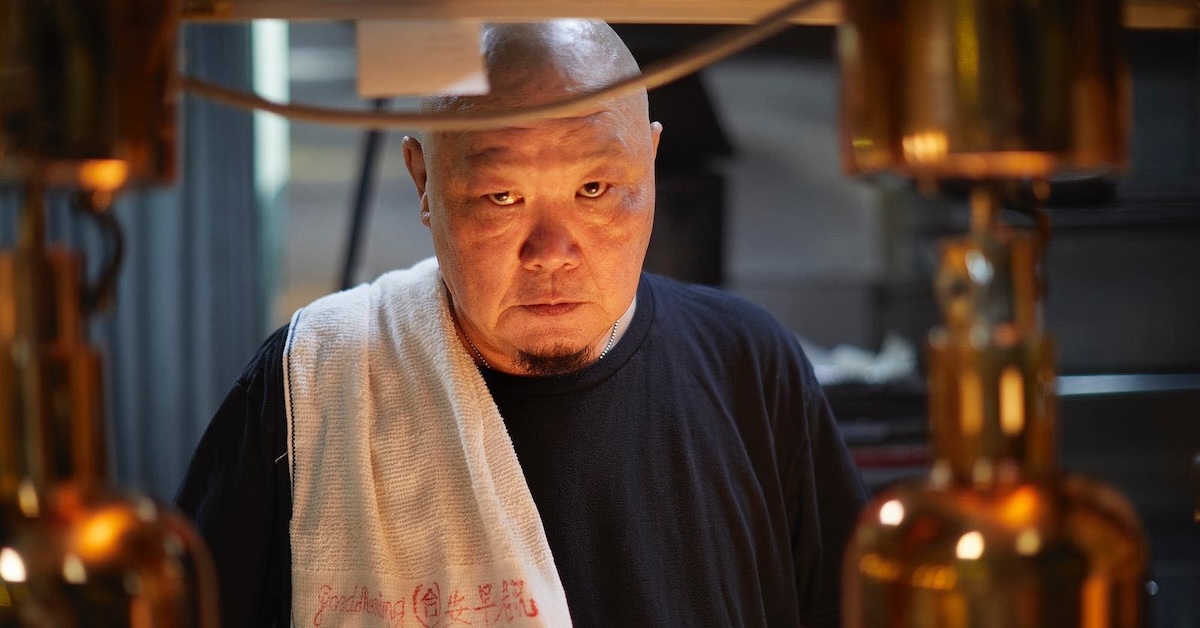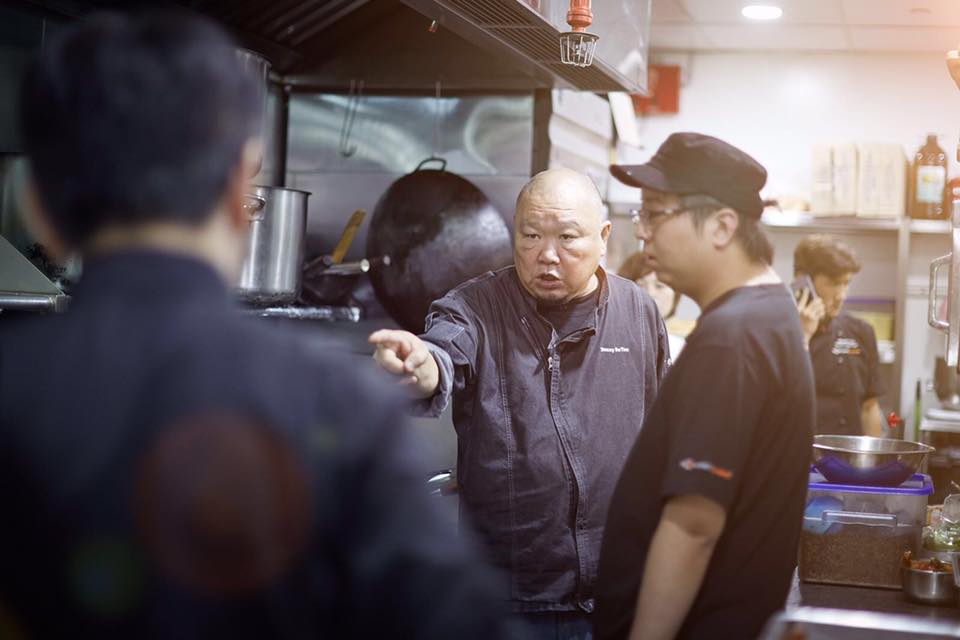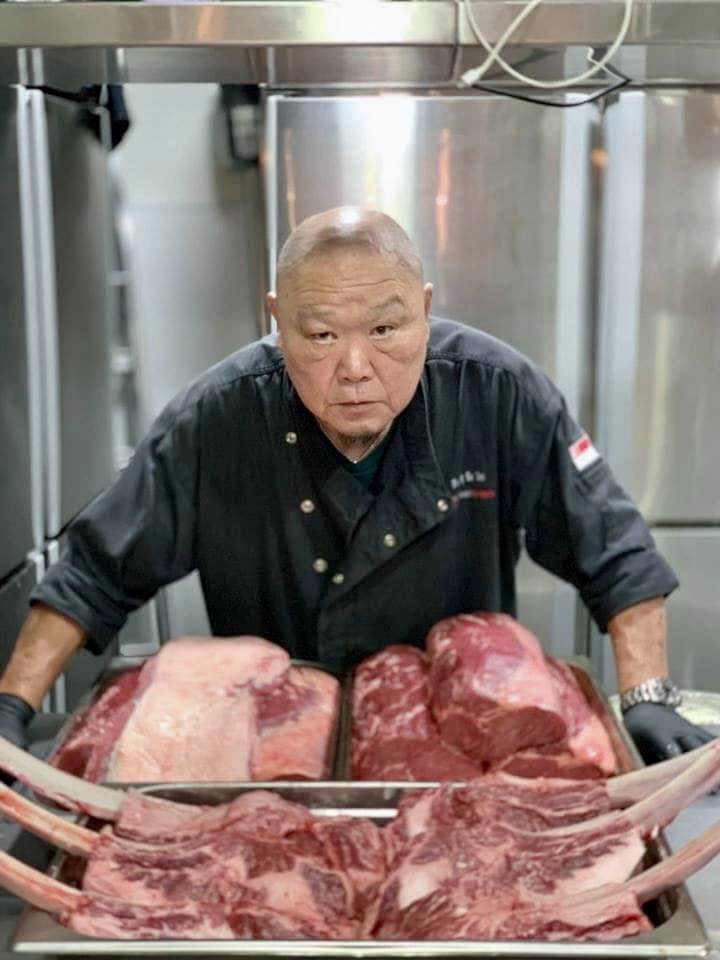“F&B is a different animal”: Eighteen Chefs founder reveals harsh truths about the industry
When it comes to Singaporean ex-convicts who have turned their lives around for the better, most of us would think of Benny Se Teo, the founder of the beloved F&B brand Eighteen Chefs. A former drug addict who went...

When it comes to Singaporean ex-convicts who have turned their lives around for the better, most of us would think of Benny Se Teo, the founder of the beloved F&B brand Eighteen Chefs.
A former drug addict who went in and out of prison for a decade, Benny decided to quit his vices for good when he had a near-death experience in 1992. He then turned to food to forge a new path for himself after his recovery and rehab.
Despite his newfound drive, he was unable to find employment due to his criminal record, which inspired the mission behind Eighteen Chefs in 2007: to provide ex-offenders like himself with a second chance at a fresh start.
Through his social enterprise, Chef Benny has not only played a major role in shifting public perceptions of ex-offenders reintegrating into society, but he has also made a name for himself in the F&B scene in Singapore.
Over the years, he has shared valuable insights from his personal journey on his Facebook page and continues to do so, even after officially retiring from Eighteen Chefs in 2021. Here are some of the most notable lessons that could benefit aspiring restaurateurs:
Lesson #1: “I’ll never be a minority shareholder again”
 Image Credit: Ng Chai Soong
Image Credit: Ng Chai Soong Starting an F&B business is no easy feat, so some business owners may seek external partners for various reasons, including funding, leveraging their networks or operational advice. This might seem like a foolproof strategy that benefits all parties, but Chef Benny showed the potential downsides by sharing his personal experience.
In a post titled: Lessons from the Trenches: Why I’ll Never Be a Minority Shareholder Again, he wrote about how every decision he made was second-guessed or quietly undermined by his partners.
Although they were all professionals in their respective fields, Chef Benny quickly learned that business sense from other industries doesn’t always translate well to F&B. As he puts it, the industry is a “different animal.”
To make matters worse, having too many conflicting voices only pushed the business deeper into the red, eventually leaving it at a standstill. Long story short, having too many cooks had spoiled the broth.
Lesson #2: True leadership comes from the worst moments
Years of being undermined led the business to go “technically bankrupt,” and Chef Benny was finally given the green light to call all the shots—and he made the most of it.
I took that struggling S$200,000 startup and turned it into a S$20 million-a-year enterprise… not with ego but with sheer grit… refining the menu knowing the ground, reading the market, understanding the people.
In a post he shared a decade ago, Chef Benny stressed that restaurant owners carry the responsibility of running a profitable business, as they are not only responsible for themselves, but also their staff and customers.
“You have a responsibility to run a profitable restaurant. It’s not an option, not a hope, nor a wish. It’s a must.”
Lesson #3: Some partners will only be there for the harvest
 Image Credit: Benny Se Teo
Image Credit: Benny Se Teo When Eighteen Chefs started recouping its expenses and gaining traction in Singapore, Chef Benny wrote about the irony of the partners who had previously doubted him wanting a share of the spotlight.
At the business’s lowest point, when staff were resigning and its future was uncertain, he was introduced simply as the founder. But once media coverage picked up and accolades started to roll in, that changed—those same partners suggested that he state his title as the business’s “co-founder” instead, in the name of inclusivity.
Never build with people who only show up for the harvest… if they didn’t bleed with you in the kitchen, they don’t get a slice of the pie.
Lesson #4: Know your investment
According to Chef Benny, there are two things that any restaurant should have in place: A budget and a set of recipe costing cards.
He explained that every business needs to have a “war chest,” where, for every business with S$500,000 in starting capital, at least S$2 million should be ready for cash flow. An F&B business owner should also know their prime cost, which is:
Prime Cost = Total cost of goods sold (based on use, not purchases) + Total labour costs for management and line employees combined (includes tax, benefits and insurance)
With the rising costs being the bane of many businesses, being money smart has never been more important than ever.
Lesson #5: Awards and accolades do not guarantee success
 Image Credit: Benny Se Teo
Image Credit: Benny Se Teo In a Facebook post titled “Accolades Don’t Shield You From The Harsh Realities“, Chef Benny shared that relying on awards doesn’t shield F&B businesses from rising costs, labour crunch, and shifting consumer behaviours.
He pointed out the impending closures of Alma restaurant by Juan Amador, which has one Michelin star, and heritage restaurant Ka-Soh, as “sombering reminders.” This also follows news that eight one-Michelin-starred restaurant closures in 2024, a high turnover highlighted in the recent Michelin Guide ceremony.
“Even with good food and service, survival today takes more,” he said, highlighting the mental toll the F&B industry takes on chefs and restaurant owners—jobs that demand passion, skill, and, more importantly, immense mental strength to stay standing in long shifts.
Many in this industry fight private battles daily … it’s time we recognised that sustainability in F&B isn’t just financial … it’s mental, emotional, and human. Stars don’t keep the lights on … strength does.
A tough reality
Running an F&B business is never a walk in the park, but a record number of shutdowns in 2024 and frequent closure announcements have painted a bleak picture of Singapore’s F&B scene.
As such, some former owners have stepped forward to share their experiences nearing the closing, even discouraging others from entering the industry, and it appears that Chef Benny shares a similar sentiment.
If you want to destroy your enemy, ask him to open a restaurant.
At the heart of it all, Chef Benny’s lessons serve as a raw and honest reminder that running an F&B business is not about passion, titles, or power—it’s about having the resilience, a strong direction and finding the right people to build with.
Read more articles we’ve written on Singaporean startups here.Featured Image Credit: Benny Se Teo via Facebook

 Hollif
Hollif 




























